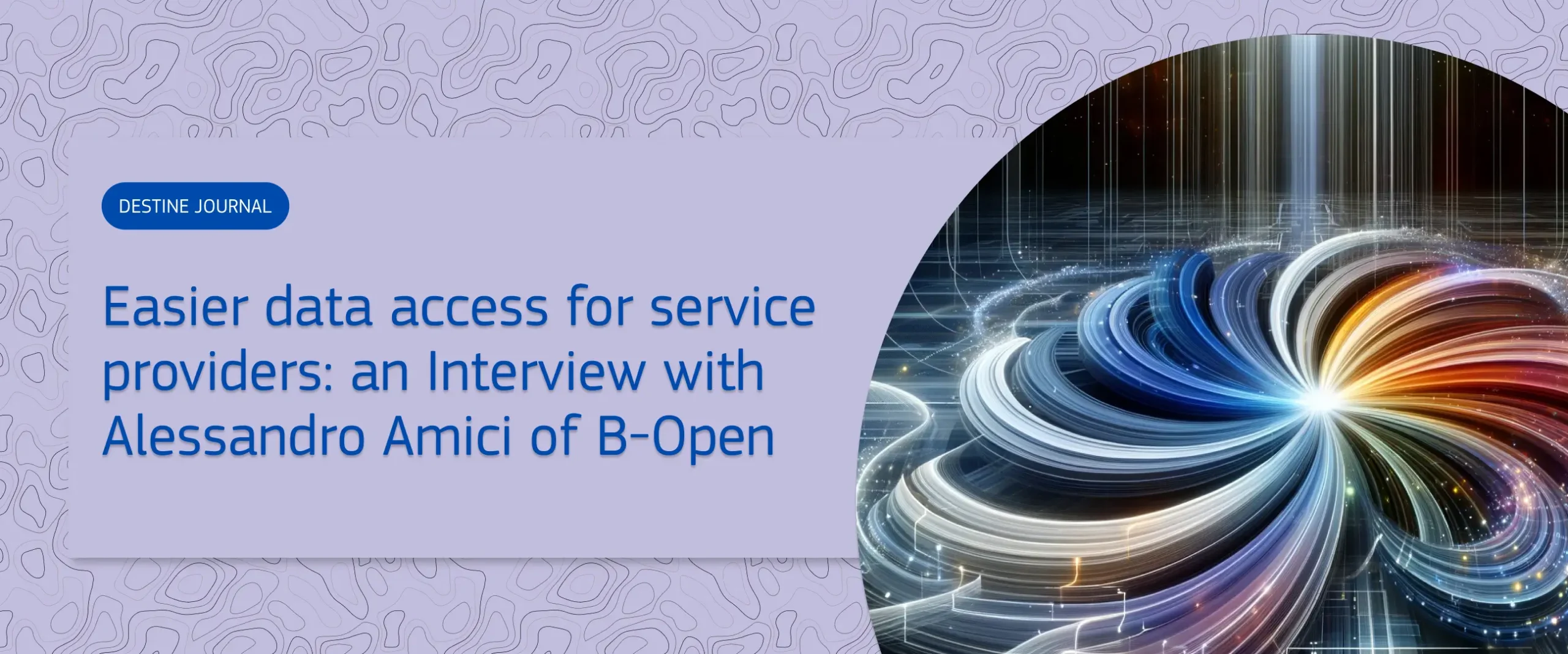Overcoming the issue of accessing large amounts of data through DestinE Platform

B-Open’s Alessandro Amici shares how they’ve made data access easier for service providers within the DestinE Platform through open-source technologies
Earth and climate data holds the opportunity to make cities more resilient, better prepared and potentially, better informed to take on the challenges that our fast-changing environment presents. The catch is that accessing the data – let alone making sense of it – remains a challenge.
The world of Earth and climate data is built on a variety of data-producing instruments, organisations, and technologies. While the original data producers benefit from their fit-for-purpose data access and visualisation mechanisms for their own needs, these practices contribute to a proliferation of different ways to request data.
When someone from outside their organisation needs access, there’s a steep learning curve to overcome for developers due to complex request languages. This lack of standards for data access contributes to siloed data. If that’s not enough, users also face slow access to time series (used to monitor changes in land use and cover over time) as well as growing queues for those that need advanced processing.
DestinE is dedicated to find solutions to these challenges by providing easy access to Earth and climate data, forecasts to decision-makers, as well as value-added services out of the data in DestinE.
Community-sourced solution
When Alessandro Amici of B-Open and his team heard about the Destination Earth’s (DestinE) ambition to make climate data easier to access, they saw parallels with their work building a data access service for the Climate Data Store – a major European climate data access point.
Along with B-Open’s experience in EO algorithm design, software development, image processing, data and work-flow management and access, they also use open-source technologies that share the values of openness and transparency commonly championed by European-backed solutions, coupled with community-sourced value-added solutions.
B-Open joined the DestinE initiative and proposed an optimised solution to support the DestinE Platform specifically in its local data analysis. With their Harmonised Earth Data Provision (HEDP) solution, DestinE providers are empowered with easier access to data and its visualisation capabilities.
Alessandro highlighted that by using cloud-native data formats to support cloud-native processing, the HEDP is expected to improve user experience and enable optimal data granularity (the level of detail in a dataset) to support different types of use cases. As a result, the community using DestinE will have access to refined tools, allowing them to quickly obtain and process data at least ten times faster than when using the average comparable service.
How it works and main benefits
To address the common barriers that continue to limit easy Earth and climate data access, B-Open has introduced a new approach for their HEDP to serve data through a cloud cluster. Most importantly, the data served through the cloud native standard is already prepared for analysis, and users have access to a set of tools to allow efficient use of the data for various purposes.
B-Open envisages a service of virtual granularity (increasing data granularity through processing techniques such as aggregation, interpolation and enrichment) at a later stage. Nonetheless the cloud-native processing will already take a big step to simplify the user experience by enabling the developer to obtain relatively advanced processing in the cloud. This means that with this set-up, the developer will access processed data with proper granularity with only a few lines of code.
As for access to the service, some functionalities of HEDP will be available to all registered users, while more advanced capabilities to run workflows within the DESP will be granted exclusively to service providers.
B-Open’s collaboration with the platform is expected to facilitate advancements in Earth observation data analysis, contributing to Europe’s efforts in environmental research and data management.
The HEDP was presented during the 2nd DestinE User eXchange as part of the session, Using the Service Platform. Access the presentation now!